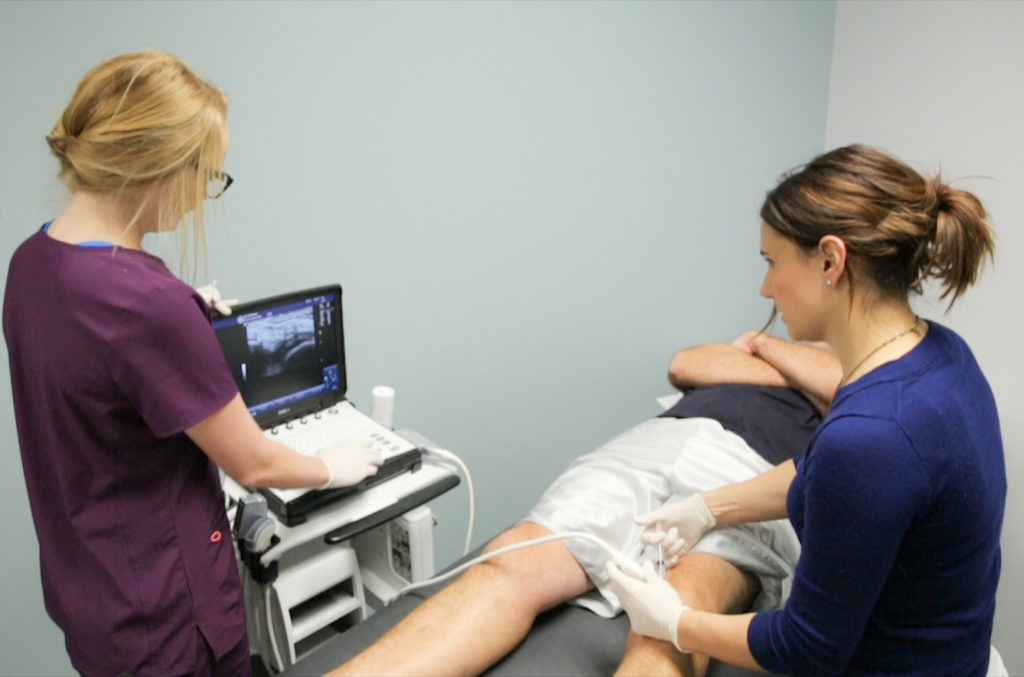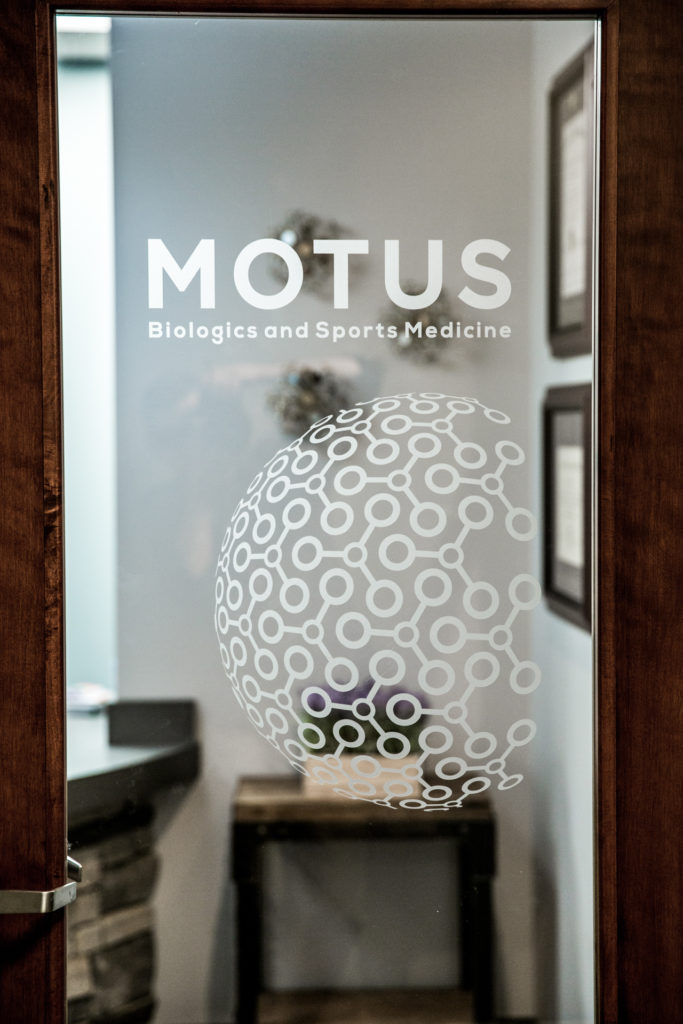Is regenerative medicine treatment more effective than surgery?
Recently, Motus Biologics owner Leslie Michaud invited questions from online users from around the world interested in mesenchymal cells and alternative medicine.
It was exciting to see the enthusiasm of the general public about regenerative medicine. Many expressed curiosity, some a healthy dose of doubt, and others shared their own stories about past injuries and how mesenchymal cells may (or may not) have helped them personally.
During this forum, Dr. Michaud was asked by a user:
“Are cellular treatments equivalent to or more effective than surgery and why? Do the results last just as long? I’ve been told I need to get a hip replacement but I don’t want to have to redo it down the road like some of my friends. Can regenerative medicine treatments help to prevent this?”
While this seems like a straightforward question, the answer to it is actually much more complex.

Hips are the second most commonly replaced joint after knees. While you may have been told that the next step is surgery, you may also be worried about the risks, cost, and recovery time which can keep you from work and play longer than you anticipated.
Making sure that a treatment is effective for your specific condition is not only wise and potentially cost effective, it’s also important to your overall health and wellness in the long term.
But what does it mean for something to be “effective”?
Sometimes when people ask if something is effective, what they’re really asking is, “will it take my pain away?”
However, there are more factors that could encompass the “efficacy” of a procedure or treatment, aside from pain. When you ask if something is effective, you could be asking:
- Is the procedure itself effective? How long does it take?
- How long does the replacement last?
- Will it take my pain away? What percentage of my pain will be gone?
- Will it help me live longer?
- How long will the results last?
- Will it work for my specific condition?
- Will it work despite my medical history?
- What is the success rate among all patients who have undergone this treatment?
Because of all the varying factors and subjectivity that can go into the term “effectiveness,” it is nearly impossible to say that a particular treatment or surgery is or is not effective. Rather, we use a percentage.
That means no intervention is 100% effective.
If there was such a thing, there would be only one treatment available to patients.
When we (the medical community) say something is X% effective, what we are referring to is the percentage of patients for whom we were able to record optimal results or improvement following the treatment.
How effective is surgery?

In order to answer our patient’s question, first we need to look at the efficacy of surgery overall.
Does surgery work? What is the rate of patient success?
Let’s use the question about hip replacement as an example.
The efficacy of hip replacement surgery depends on a variety of factors, including:
- Exact condition being treated, and the severity of that condition
- Past medical and surgical history
- Other patient limitations, known as co-morbidities
In general, hip replacement surgery is longer lasting than stem cell treatments. However, it is considerably more risky and requires downtime in which you cannot perform activities or immediately jump back into your routine.
For example, the FDA noted that in the case of metal-on-metal hip replacement systems, approximately 95% of patients with any kind of total hip replacement have not undergone revision surgery for seven years after the initial implant.
To you, this may seem “effective.” To others, it may not seem worth the time or money of a surgery for only a 95% success rate for seven years.
This percentage is a helpful way for us to help communicate with patients the risk and benefits of making a particular decision in regards to their health and overall well-being.
Is regenerative medicine treatment more effective than surgery?

Either you respond to mesenchymal cells, or you don’t. “Responders” are patients who report 60% or more improvement in pain, stiffness, and function 6 months after treatment. Interestingly, many of these responders will report the biggest jump in improvement 12 to 24 months after treatment.
This is important to know because regenerative cellular treatment, and surgery for that matter, is not ideal for those looking for a quick fix.
The risks and downtime are very low. Regenerative medicine treatment is a same day in-office procedure that eliminates the risks and costs associated with surgery and anesthesia.
Non-responders report no improvement in pain, stiffness, or function 6 months after treatment.
Suboptimal responders have improvement, but it is not good enough.
It is important to know that regenerative medicine treatment is not a permanent solution. We are hoping to provide patients with anywhere from 4-6 years of improvement.
Many patients are trying to hold off on getting a replacement by getting mesenchymal cell treatments. They may also have a medical condition or other limitation, like metal allergies, which would render them unfit candidates for surgery.
Having to have multiple treatments over the years is a disadvantage in that, if you have a hip or knee replacement later in life, and there are no complications, it can sometimes last you forever.
In this sense, regenerative medicine may be effective in treating pain in the short term, and is more economical and practical for patients who don’t want to spend the downtime and money on surgery unless absolutely necessary.
Essentially, mesenchymal cell treatments can help many patients “kick the can” down the road and successfully delay surgery.
What are mesenchymal cells?

Mesenchymal cells are a special type of cell that our bodies keep “on call” for injuries. These cells are “unspecialized,” meaning they have the capability of becoming another type of cell to be used in various places throughout the body.
Mesenchymal cells can help facilitate the healing of injuries to the bone, cartilage, muscle, tendon, ligament, and bone.
Motus Biologics has extensive training from physicians in the United States with longstanding expertise in this field.
When should I think about regenerative medicine treatment?

In the case of our forum user’s question, they were trying to communicate that while they would probably eventually need a hip replacement, they did not want to have to face a second replacement (also known as a revision) down the road like some of their friends.
Regenerative cellular treatments or other alternative medicine should be an option made available to you before taking the dive into replacement surgery.
This is because once you get a replacement, mesenchymal cell treatments are no longer an option.
One of the way these cells work is by relying on signaling from other cells to improve effectiveness. However, when you get a hip replacement, it works by literally removing the live cells in your joint and replacing it with a synthetic material (usually titanium or ceramic).
Therefore, if you experience hip pain down the road after surgery, you would not have any other option aside from another replacement.
Alternative Treatment for Hip Pain: PRP

Platelet Rich Plasma, or PRP, is a revolutionary (yet conservative) approach to treating many orthopedic conditions using a concentration of your own blood platelets.
PRP, also referred to as “growth factor,” is often used in conjunction with adult mesenchymal cells but can be used on its own with certain conditions.
Which treatment is right for me?

You should discuss your symptoms, medical and surgical history, lifestyle, and other conditions with your doctor. We will then let you know about the different options available to you based on your discussion—whether that’s PRP, regenerative cellular therapy, or surgery.
Once the proper diagnosis is established, we can design a customized treatment plan. Whether this is medications, physical therapy, or a referral to a doctor specializing in rheumatology or infectious disease; Motus is here to ensure that you are aware of the options available to you.
Should you be found to have a condition that requires traditional surgical treatment, Motus is happy to refer you to one of the many terrific local orthopedic surgeons, or to the surgeon of your choice.
It’s up to you to choose what’s right for you based on this conversation between you and your doctor.
In this day and age, it’s especially important to be an advocate for yourself and to find the right provider that will have your best interests at heart.
About Motus Biologics

Dr. Michaud has been practicing medicine for over 14 years. She started using PRP in 2014. After learning more about improved outcomes of this combined with mesenchymal cell treatment, she trained with and became an affiliate of Bluetail Medical Group, pioneers in the field of regenerative medicine, to learn how to safely and effectively perform these procedures. Dr. Michaud constantly works to debunk common misconceptions about regenerative medicine and educate patients and other clinics about cellular therapy as an alternative to traditional treatments like surgery.
These patients and clinics are located all over the country, and many people find it beneficial to travel to Kansas City to receive the education and care offered at Motus Biologics.
If you have any particular questions about regenerative medicine treatments, please don’t hesitate to contact our office. We would be happy to introduce you to cellular medicine and how it may be helpful for your unique situation.
What other questions do you have about regenerative medicine treatments?

Motus Biologics is here to be your online resource for all-things regenerative medicine. Please don’t hesitate to contact us and we’ll be happy to discuss your options with you.
You can also use our free Virtual Consultation tool to determine the best treatment for your pain points.

